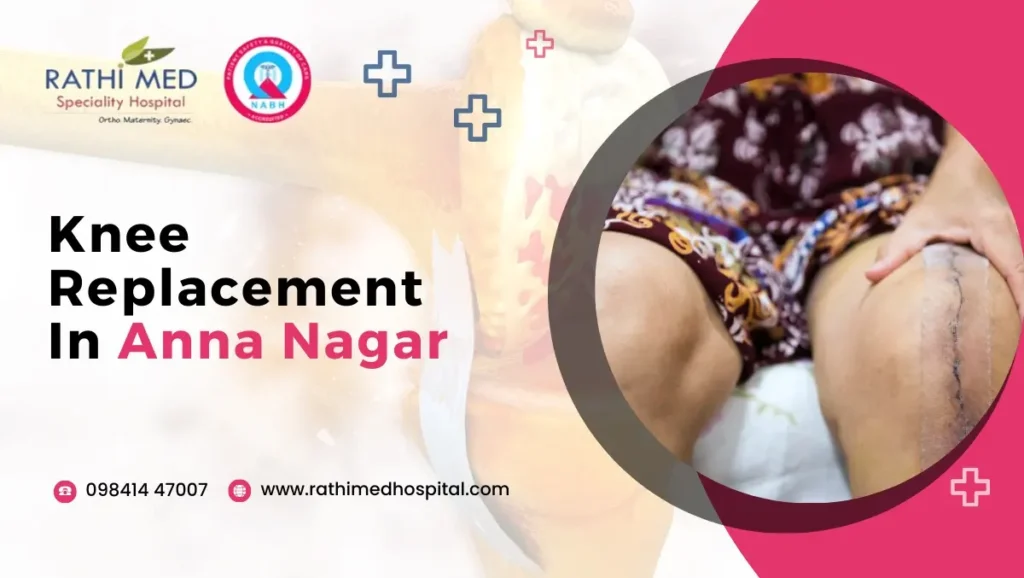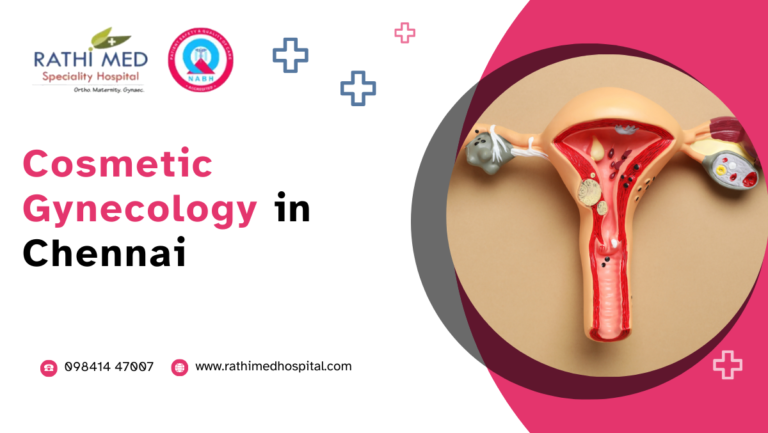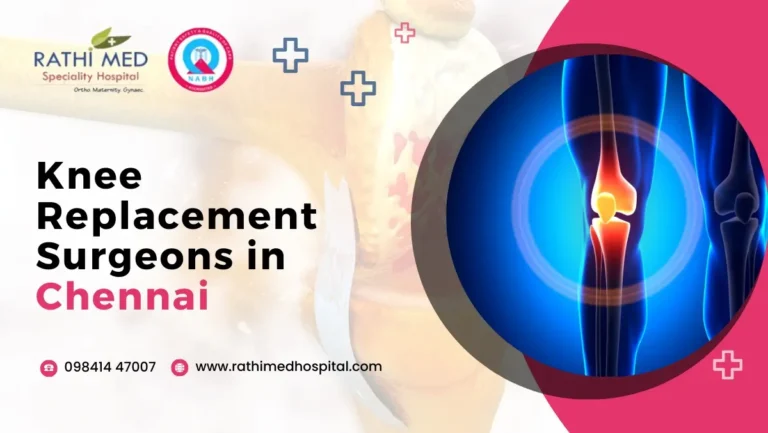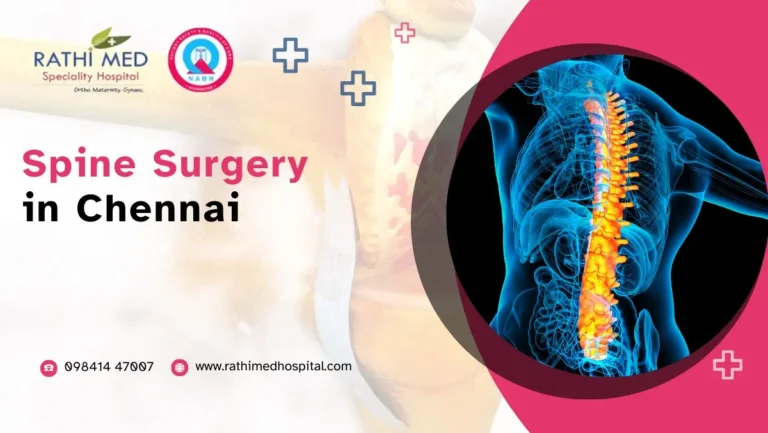Knee replacement in Anna Nagar offers a ray of hope for individuals suffering from debilitating knee conditions. Located in the heart of Chennai, Anna Nagar boasts state-of-the-art medical facilities, including renowned orthopedic centers specializing in knee replacement surgeries.
What is Knee Replacement?
Knee replacement, also known as knee arthroplasty, is a surgical procedure aimed at relieving pain and restoring function in damaged knee joints. This procedure, commonly sought by individuals considering knee replacement in Anna Nagar, involves replacing the damaged or diseased parts of the knee with artificial implants made of metal alloys, high-grade plastics, or ceramics.

Types of Knee Replacement
Knee replacement in Anna Nagar offers various types of procedures tailored to meet the unique needs of patients suffering from knee joint deterioration. These procedures aim to alleviate pain and improve mobility, enabling individuals to lead active lives once again. Below are the main types of knee replacement surgeries commonly performed:
- Total Knee Replacement – Also known as total knee arthroplasty, this procedure involves replacing the entire knee joint with artificial implants. It is typically recommended for individuals with advanced arthritis affecting all compartments of the knee.
- Partial Knee Replacement – In this procedure, only the damaged part of the knee joint is replaced with prosthetic components, preserving healthy bone and tissue. It is suitable for patients with localized arthritis confined to one compartment of the knee.
- Revision Knee Replacement – This surgery is performed to replace a previously implanted artificial knee joint that has worn out, become loose, or failed due to various reasons.
Each type of knee replacement in Anna Nagar is carefully chosen based on the patient’s condition, severity of knee damage, and treatment goals, ensuring personalized care and optimal outcomes for every individual.
Benefits of Knee Replacement Surgery
Knee replacement surgery is a transformative procedure for individuals suffering from severe knee pain and mobility issues caused by arthritis, injuries, or other degenerative conditions. It offers significant benefits, including:
- Pain Relief: Most patients experience a dramatic reduction or elimination of knee pain.
- Improved Mobility: Replacing the damaged joint enables smoother movement and greater range of motion.
- Enhanced Quality of Life: Patients can return to daily activities, hobbies, and even exercise routines.
- Long-Lasting Results: Modern implants often last 15–20 years, providing lasting relief.
For individuals in Chennai, knee replacement surgery in Anna Nagar provides access to advanced medical care close to home, ensuring optimal recovery.
Complications of Knee Replacement Surgery
While highly effective, knee replacement in Anna Nagar may involve potential risks:
- Infection: A small percentage of patients may develop infections around the implant.
- Blood Clots: These may occur in the legs or lungs, requiring prompt medical attention.
- Implant Loosening: Over time, the prosthesis may loosen, necessitating revision surgery.
- Stiffness: Some patients may experience limited knee flexibility post-surgery.
Choosing an experienced surgeon for knee replacement surgery in Anna Nagar reduces these risks and ensures personalized care. Proper post-operative rehabilitation is essential to achieving the best outcomes and minimizing complications.
Preparing for Knee Replacement Surgery
Consultation and Evaluation
Before undergoing knee replacement surgery in Anna Nagar undergo a thorough consultation and evaluation process with an orthopedic surgeon. This involves discussing medical history, conducting physical examinations, and performing diagnostic tests such as X-rays and MRI scans to assess the extent of knee damage.
Preoperative Preparations
Patients are advised to follow preoperative instructions provided by their healthcare team, which may include:
- Stopping certain medications that can increase the risk of bleeding.
- Undergoing preoperative physical therapy to strengthen surrounding muscles and improve mobility.
- Making necessary arrangements for post-operative care and rehabilitation.
Knee Replacement Cost in Anna Nagar
The knee replacement cost in Anna Nagar can vary depending on several factors, including the type of procedure, the choice of hospital, surgeon’s fees, and additional expenses such as post-operative care and rehabilitation. On average, the cost of knee replacement surgery in Anna Nagar ranges from INR 1,50,000 to INR 3,50,000.
The Surgical Procedure: What to Expect
The Day of Surgery
On the day of knee replacement surgery in Anna Nagar, patients are admitted to the hospital and prepared for the procedure. This typically involves:
- Administering anesthesia to ensure the patient is comfortable and pain-free during surgery.
- Sterilizing the surgical site to reduce the risk of infection.
- Positioning the patient on the operating table in a way that provides optimal access to the knee joint.
The Surgical Technique
During knee replacement surgery, the orthopedic surgeon makes an incision over the knee joint and removes the damaged cartilage and bone. The prosthetic components are then securely implanted into the joint, restoring stability and function. The incision is closed, and the surgical site is bandaged.
Post-Operative Care After Knee Replacement Surgery
Follow Surgeon’s Instructions:
- Adhere to guidelines on wound care, medication, weight-bearing, and activity resumption.
Manage Pain and Swelling:
- Take prescribed medications as directed.
- Use ice packs and keep your leg elevated to minimize swelling.
Practice Proper Wound Care:
- Keep the surgical incision clean and dry.
- Notify your surgeon of any signs of infection, such as redness or drainage.
Participate in Physical Therapy:
- Attend all therapy sessions.
- Perform recommended exercises at home to restore strength and mobility.
Gradually Increase Activity Levels:
- Start with gentle exercises and progress as your strength improves.
- Refrain from engaging in high-impact activities and heavy lifting until your surgeon gives clearance.
Maintain a Healthy Lifestyle:
- Maintain a balanced diet, stay hydrated, and ensure you get sufficient rest.
- Quit smoking to improve healing.
Monitor for Complications:
- Be vigilant for signs of infection or blood clots.
- Seek medical attention for unusual symptoms.
Attend Follow-up Appointments:
- Regularly see your surgeon to track progress and ensure a smooth recovery.
Consult Specialists:
- Seek advice and support from experienced Knee Replacement Surgeons in Chennai.
Side Effects of Knee Replacement
- Pain and Swelling: Common in the initial weeks post-surgery.
- Infection: Risk of infection at the incision site or deeper.
- Blood Clots: Potential for clots in leg veins.
- Stiffness: Difficulty in fully bending or straightening the knee.
- Nerve Damage: Possible numbness or weakness around the knee.
- Implant Issues: Wear and tear of the artificial joint over time.
- Allergic Reactions: Reaction to the materials used in the implant.
- Loosening or Dislocation: The new joint may become loose or dislocate.
Always consult with a healthcare professional for personalized information.
Signs You Need Knee Replacement Surgery
Knee replacement surgery is a significant decision often made when other treatments no longer alleviate pain or improve mobility. Here are some signs indicating you may need knee replacement treatment in Chennai:
- Chronic Knee Pain: Persistent pain that interferes with daily activities such as walking, climbing stairs, or even resting.
- Limited Mobility: Difficulty in bending, stretching, or moving the knee due to stiffness.
- Swelling and Inflammation: Persistent swelling that doesn’t subside with medications or therapy.
- Failed Non-Surgical Treatments: Lack of improvement with physical therapy, medications, or injections.
- Decreased Quality of Life: When knee pain prevents you from enjoying life or performing basic tasks.
If you experience any of these symptoms, consult an expert in knee replacement surgery in Chennai to discuss your options.
Things to Take Care of After the Knee Replacement Surgery
Recovering from knee replacement surgery in Chennai involves a combination of rest, rehabilitation, and care. Here are some essential steps to ensure a smooth recovery:
1. Follow Your Doctor’s Instructions
- Take prescribed medications on time.
- Attend all follow-up appointments for progress checks.
2. Engage in Physical Therapy
- Start with light exercises as recommended by your physiotherapist.
- Gradually increase your activity levels to strengthen the knee joint.
3. Maintain Proper Hygiene
- Keep the surgical site clean and dry to prevent infections.
- Monitor for signs of infection like redness, swelling, or fever.
4. Use Assistive Devices
- Use crutches or walkers initially to avoid putting pressure on the knee.
- Transition to walking unaided as your strength improves.
5. Watch Your Diet
- Consume foods rich in calcium and protein for faster healing.
- Stay hydrated and maintain a balanced diet.
6. Avoid Strenuous Activities
- Avoid high-impact exercises or heavy lifting during recovery.
- Focus on low-impact movements to regain flexibility.
By adhering to these guidelines and seeking timely assistance from specialists in knee replacement treatment in Chennai, you can achieve a successful recovery and enjoy a better quality of life.
Conclusion
Knee replacement in Anna Nagar offers a beacon of hope for individuals suffering from chronic knee pain and disability. With advancements in surgical techniques and rehabilitation protocols, patients can look forward to restored mobility, improved quality of life, and a return to the activities they enjoy. By choosing reputable orthopedic centers in Anna Nagar and following preoperative preparations and postoperative care guidelines diligently, patients can embark on a journey towards a pain-free and active lifestyle.





